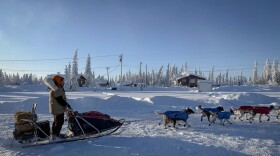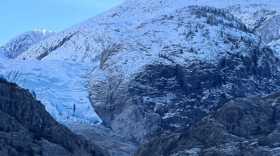-
Washington and other Democratic-led states drop lawsuit against Arctic Refuge oil drilling in AlaskaA group of environmental and tribal groups had filed suit in 2020 at the same time as the Democratic-led states. Last month, that coalition renewed their suit.
-
The state's sport fishing division issued a flurry of emergency orders Monday that target the Kenai and Kasilof rivers.
-
The Environmental Protection Agency is eliminating a Clean Air Act finding from 2009 that is the basis for much of the federal government's actions to rein in climate change.
-
As the race moves onto the Yukon River, lows are forecast to be around minus-50.
-
The giveaway for the Gerstle River Bridge does come with some conditions.
-
Officials say it’s due to staff capacity and challenges of the site, not nearby mining interests.
-
The Bureau of Ocean Energy Management is evaluating whether to hold a first-of-its-kind lease sale for seabed mineral development in federal waters off Alaska, and seeking information and input to help decide if it should move forward.
-
A 2017 lease sale drew lackluster bidding, and a 2021 lease sale drew no bids at all.
-
"If you're flying rockets in space, and you're not having fun, you're doing it wrong," said the researcher who led the mission.
-
Most of the harvest will be old-growth trees, which some people worry will be devastating to the forest.
-
The Department of Interior said it was illegal in the first place to grant Nuiqsut rights over an area inside NPR-A.
-
A recent study found that the number of reported landslides started to increase in the 1980s and has skyrocketed in recent decades.
Alaska Public Media © 2026. All rights reserved.
Play Live Radio
Next Up:
0:00
0:00
Available On Air Stations












